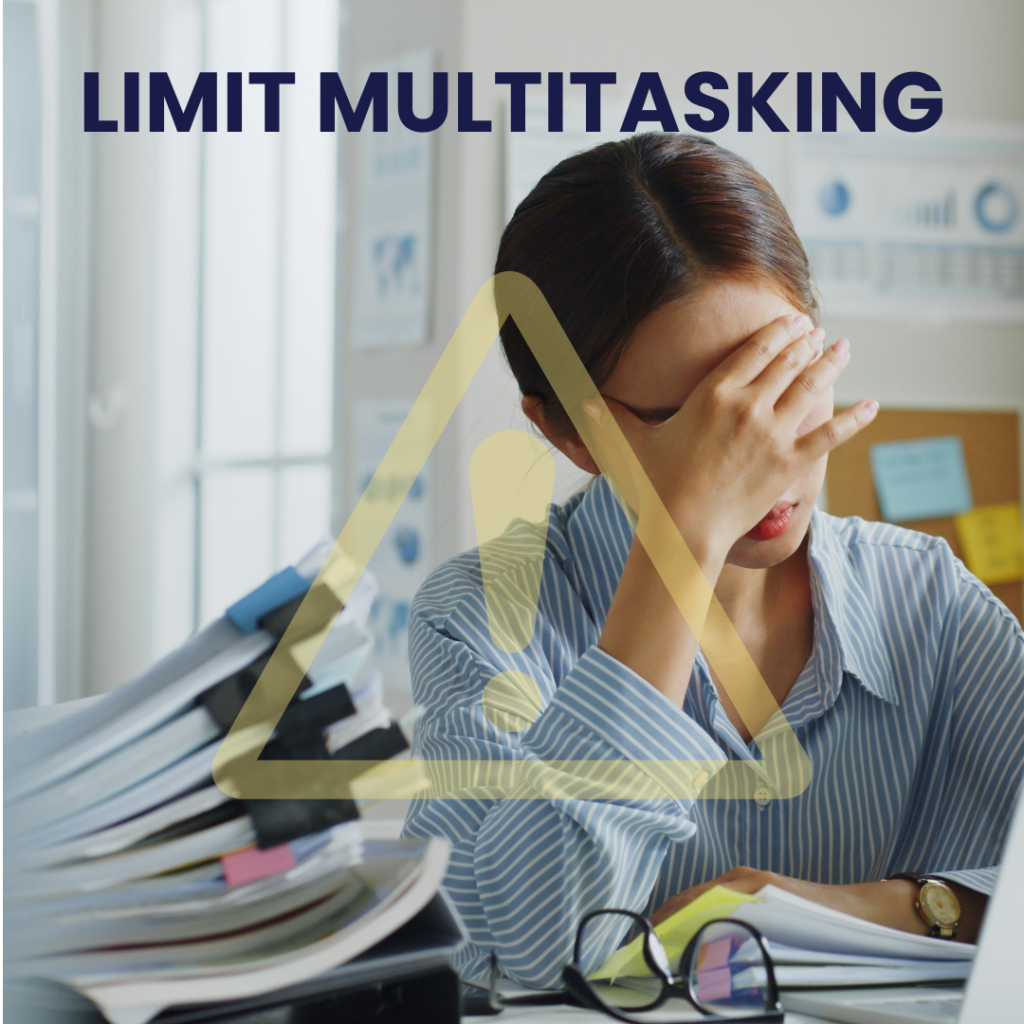How to Manage Work-Life Balance Without Burnout
Imagine this: your inbox is overflowing, deadlines are looming, and your phone keeps buzzing with reminders about errands you’ve yet to run. At the same time, your family is waiting for quality time, and self-care? It feels like a distant dream. Sound familiar? If you’ve ever found yourself caught in the whirlwind of juggling work… Read more

Reviewed by The PsychPlus Team
November 20, 2024

Imagine this: your inbox is overflowing, deadlines are looming, and your phone keeps buzzing with reminders about errands you’ve yet to run. At the same time, your family is waiting for quality time, and self-care? It feels like a distant dream. Sound familiar?
If you’ve ever found yourself caught in the whirlwind of juggling work deadlines, personal responsibilities, and everything in between, you’re not alone. The constant struggle to keep up can leave even the most resilient person feeling overwhelmed and teetering on the edge of burnout.
But here’s the good news, achieving a healthy work, life balance isn’t just a lofty ideal; it’s an attainable goal. In this guide, we’ll explore practical strategies to help you find harmony between your personal and professional life, so you can thrive without sacrificing your mental health or productivity.
When we learn to balance our responsibilities, we not only reduce stress but also create space for greater happiness and success. Let’s dive into how you can make this balance a reality!
Understanding Burnout
Burnout isn’t just about feeling tired, it’s a state of chronic physical, emotional, and mental exhaustion caused by prolonged stress. It often creeps up on us when we’re overworked and overstretched, manifesting in ways that are hard to ignore: persistent fatigue, irritability, and even a sense of detachment from work and personal life.
For example, you might find yourself snapping at loved ones over minor inconveniences or struggling to focus on tasks that once felt routine. Left unchecked, burnout can take a serious toll on your mental and physical health, making prevention all the more crucial.
And you’re not alone in this battle. According to a recent study, nearly 77% of professionals have experienced burnout in their current roles. With workplace pressures on the rise, it’s no wonder that burnout has become a global concern.
Thankfully, burnout isn’t inevitable. By prioritizing work-life balance and taking proactive steps, you can safeguard your mental well-being. If you’re feeling overwhelmed, consider visiting the PsychPlus Homepage to learn more about mental health resources and support. Prevention starts with understanding, and acting on, what your mind and body need most.

The Role of Work-Life Balance in Mental Health
Work-life balance is more than just a trendy buzzword, it’s a cornerstone of a healthy, fulfilling life. But what does it truly mean? A healthy work-life balance looks like this: meeting your professional responsibilities while still having time and energy for your personal interests, relationships, and self-care. It’s about achieving harmony, not perfection, between the demands of work and the joys of life.
When this balance is off, the consequences can ripple through every aspect of your mental health. Prolonged stress from overworking can lead to anxiety, depression, and even burnout. On the flip side, prioritizing personal time helps recharge your mind, foster creativity, and improve emotional well-being.
One essential component of work-life balance is maintaining strong social connections. Studies show that relationships play a significant role in combating stress and enhancing happiness. To explore this further, check out PsychPlus’s blog on The Link Between Social Life and Mental Health, which dives into why nurturing your social life is just as important as meeting deadlines.
By focusing on balance, you’re not only investing in your mental health but also creating a foundation for long-term success in every area of your life.
Strategies to Manage Work, Life Balance
Achieving work-life balance doesn’t happen by accident, it requires intentional strategies that help you stay in control of your time and energy. Here are some practical tips to get started:
1. Prioritize Your Tasks
Begin each day by identifying your top priorities. Use tools like to-do lists or apps to organize tasks by urgency and importance. Focus on what truly matters and let go of non-essential tasks that drain your energy. Remember, being busy doesn’t always mean being productive!
2. Set Boundaries
Learning to say “no” is a powerful skill. Clearly define your work hours and stick to them, ensuring you have time for personal activities. Avoid checking emails late at night or agreeing to tasks that stretch you too thin. Setting boundaries not only protects your mental health but also signals respect for your time to others.
3. Take Breaks
Don’t underestimate the power of a break. Step away from your desk for a quick walk, practice mindfulness, or simply stretch. Short breaks boost productivity and reduce stress, helping you return to your tasks with renewed focus.
4. Incorporate Exercise
Physical activity is a great stress reliever, even in small doses. Simple stretches or light movements can make a big difference. Need ideas? Explore Everyday Anxiety Stretches for quick and effective ways to unwind during your day.
5. Leverage Technology
Make technology work for you. Use apps like calendar planners, task managers, and even reminders for self, care. Automating tasks where possible frees up time to help you stay organized. From meal planning to project deadlines, technology can ease the burden of juggling multiple responsibilities.
By integrating these strategies into your routine, you’ll find yourself navigating the demands of work and life with greater ease and resilience. Balance isn’t about doing everything, it’s about doing the right things for you.
Signs You’re Approaching Burnout
Burnout doesn’t happen overnight, it builds up gradually, often presenting itself through physical, emotional, and behavioral signs. Recognizing these symptoms early can help you take proactive steps to prevent it.
Physical Symptoms
If you’re constantly exhausted, struggling with sleep disturbances, or experiencing unexplained headaches, your body might be sending you a warning. Persistent fatigue is one of the first signs that your work-life balance needs attention.
Emotional Signs
Feeling emotionally drained, detached from your work, or overwhelmed by everyday tasks? These emotional red flags often indicate burnout is looming. It’s common to feel like no matter what you do, it’s never enough.
Behavioral Indicators
Burnout doesn’t just impact how you feel, it affects how you act. You might notice a drop in productivity or find yourself withdrawing from loved ones and social activities. Left unchecked, these changes can strain relationships and worsen stress levels.
If these signs resonate with you, it’s crucial to take action. Seeking professional help can make a significant difference. Schedule a consultation through Book an Appointment to explore accessible mental health services tailored to your needs.
Tips to Prevent Burnout and Stay Balanced
Burnout prevention requires a proactive approach that nurtures both your physical and emotional well-being. Here are more strategies to help you maintain equilibrium:
1. Schedule “Me Time”
Block off time in your calendar for activities you love, whether it’s reading, painting, or simply relaxing. Prioritizing personal time helps recharge your energy and creativity.
2. Limit Screen Time
Excessive screen time can amplify stress. Set boundaries on phone and computer use, especially during non-working hours. Consider implementing a digital detox in the evenings to unwind.
3. Take Advantage of PTO
Don’t let your vacation days go to waste. Taking time off helps reset your mind and body, increasing productivity and job satisfaction when you return.
4. Celebrate Small Wins
Acknowledge and celebrate your achievements, no matter how small. Gratitude for progress can motivate you and reduce feelings of inadequacy.
5. Practice Gratitude
Keep a gratitude journal to focus on positive aspects of your life. A shift in perspective can help mitigate stress and enhance mental well-being.
6. Create a Soothing Workspace
Make your workspace a pleasant environment. Declutter your desk, add calming elements like plants or soft lighting, and personalize it to make work more enjoyable.
7. Learn to Delegate Effectively
Identify tasks that others can handle and empower colleagues or family members to share responsibilities. Collaboration not only lightens your workload but fosters teamwork.
8. Limit Multitasking
Focus on one task at a time to reduce mental fatigue and increase efficiency. Multitasking often leads to mistakes and heightened stress.
9. Establish a Wind-Down Routine
End your day with a calming ritual, such as reading, meditation, or a warm bath. These practices signal to your mind that it’s time to relax and let go of the day’s stress.
10. Seek Continuous Growth
Invest time in learning new skills or hobbies. Growth-oriented activities can provide a sense of accomplishment and fulfillment outside of work.
These strategies, combined with intentional self, care, can help you protect your energy, maintain focus, and thrive in both your professional and personal life.

When to Seek Professional Support
While the strategies we’ve discussed can significantly improve your work-life balance, there are times when self, management isn’t enough. If you’re feeling persistently overwhelmed, unable to manage stress, or notice that burnout is affecting your relationships and work performance, seeking professional support is crucial.
Recognizing the Need for Help
If your emotional or physical symptoms, like chronic fatigue, anxiety, or irritability, persist or worsen despite your best efforts, it might be time to reach out for support. Professional guidance can provide you with the tools to navigate these challenges and regain control over your well-being.
At PsychPlus, we’re here to help you when burnout, stress, or other mental health struggles feel too much to handle alone. Our team offers a range of services designed to support you, including same, day appointments, tele-visits, and in-office consultations. Whether you’re dealing with work, related stress or personal concerns, we’re here to provide compassionate, professional care.
Conclusion
Balancing work and life isn’t always easy, but it’s essential for maintaining your mental health and overall well-being. By prioritizing your tasks, setting boundaries, taking breaks, and incorporating self-care, you can reduce stress and avoid burnout. Remember, it’s not about doing everything, it’s about doing the right things for you.
Taking proactive steps to manage your work-life balance will not only improve your productivity but also help you thrive both professionally and personally. You deserve to feel good and stay energized in every area of your life.
If you’re ready for more tips on maintaining your mental health, explore our Blog Page for more helpful resources. And if you need support, don’t hesitate to book an appointment today, we’re here to help.
Find a mental health care provider near you
Learn about the conditions we treat


